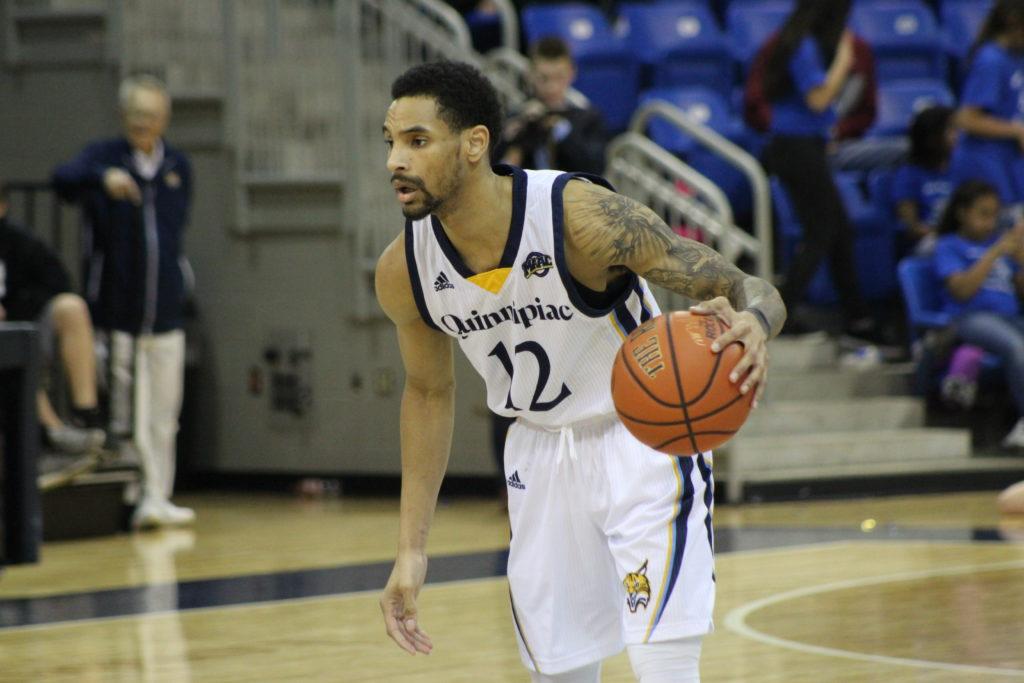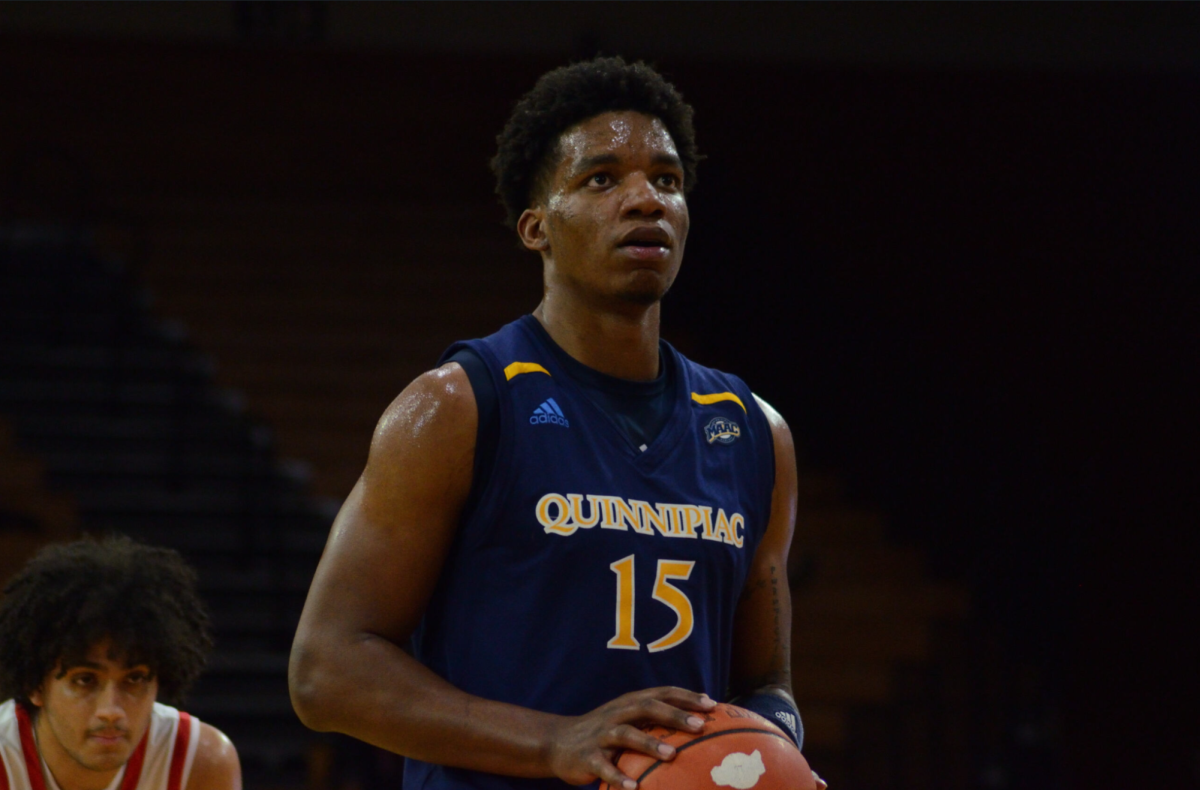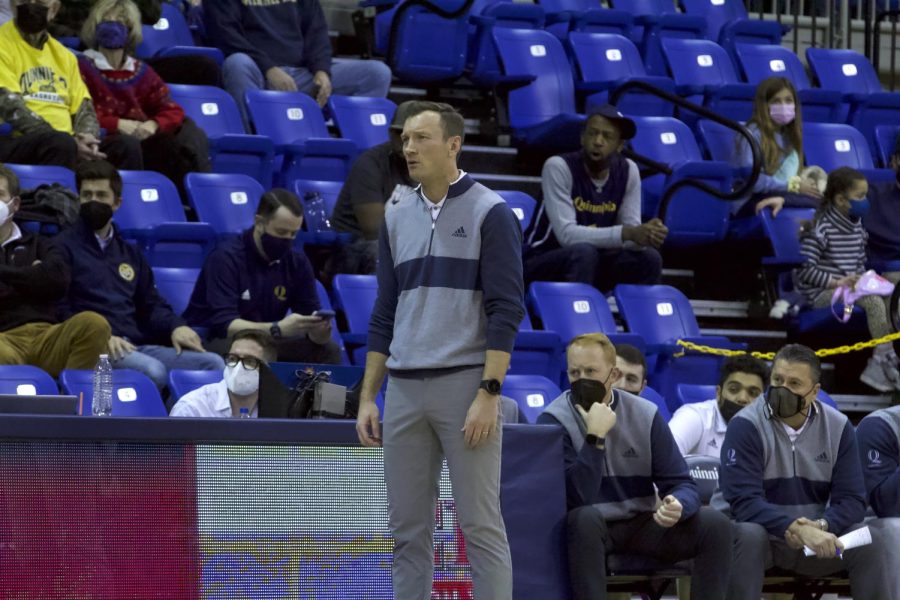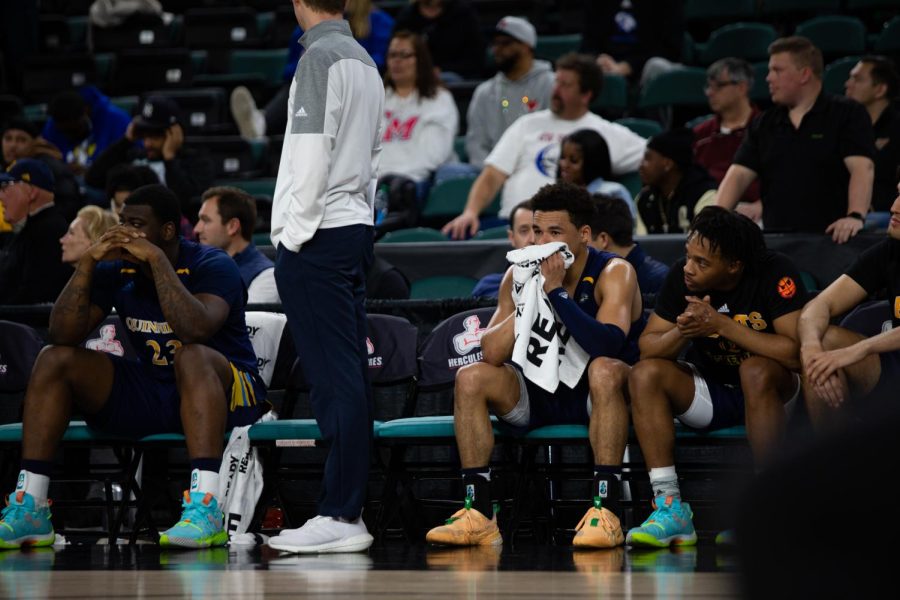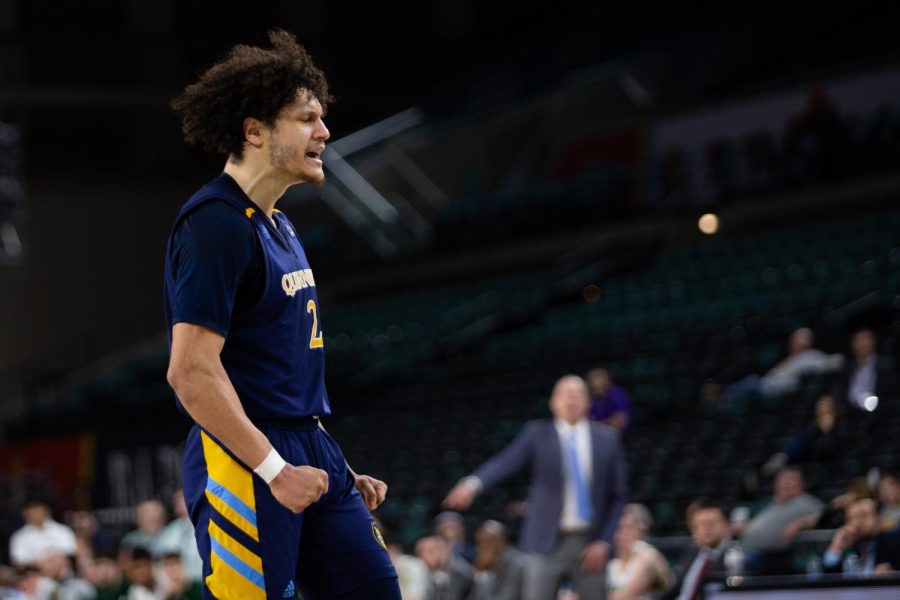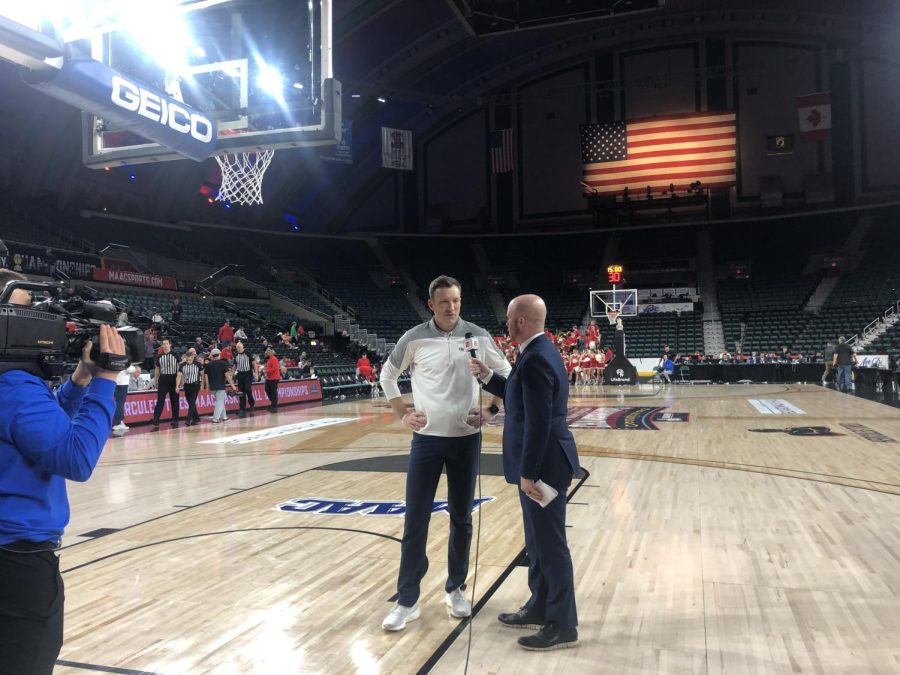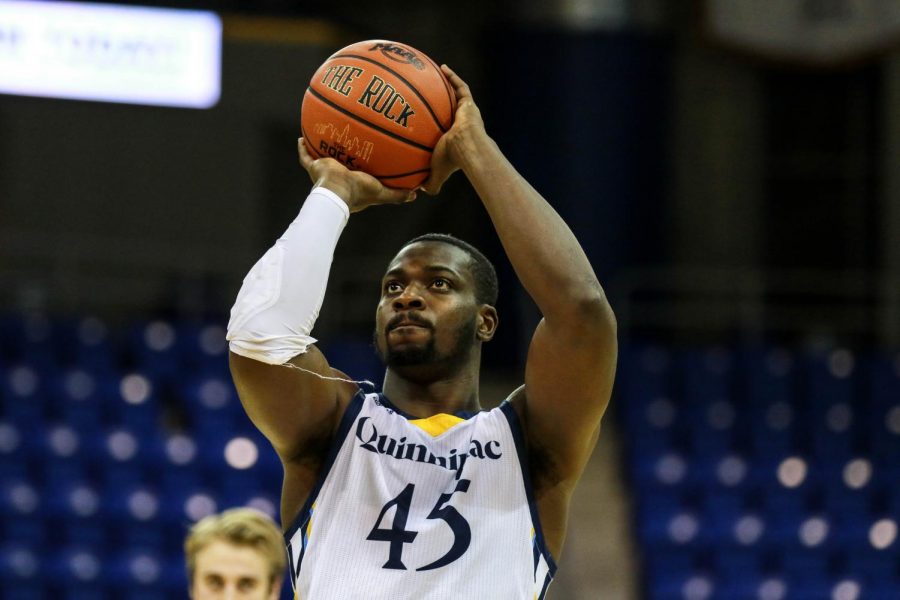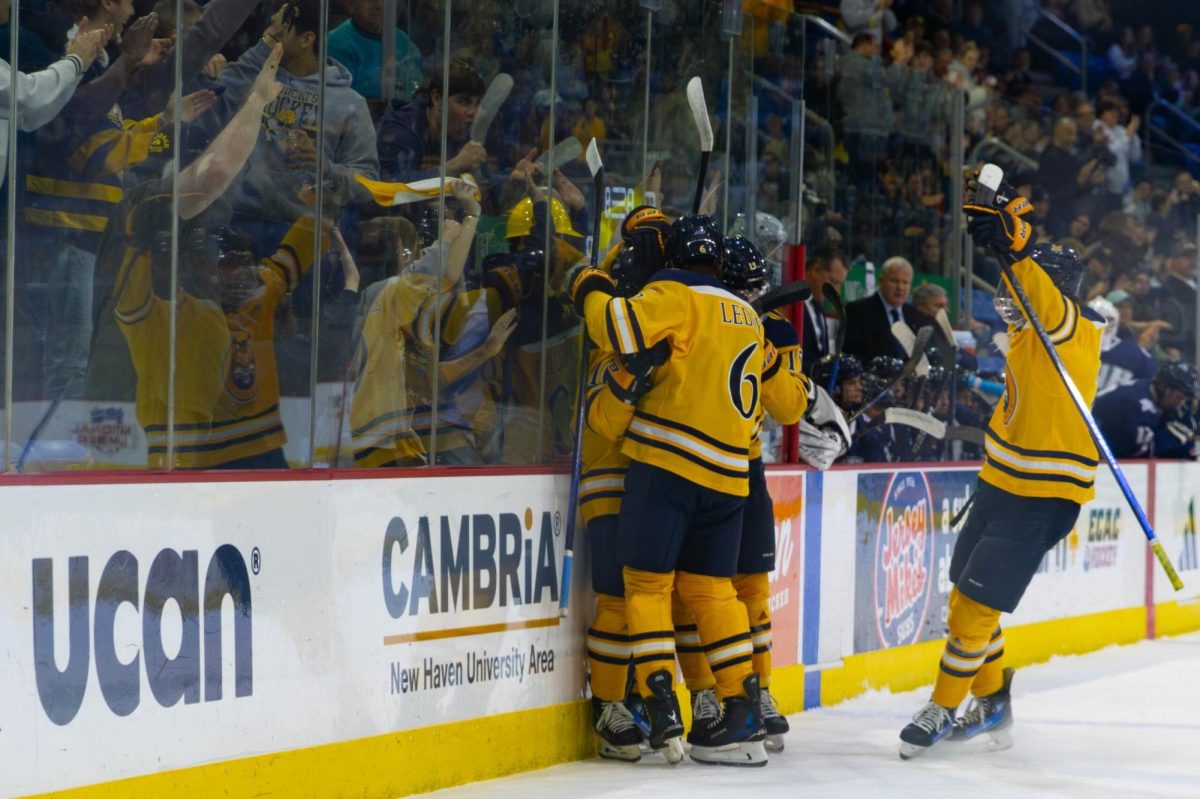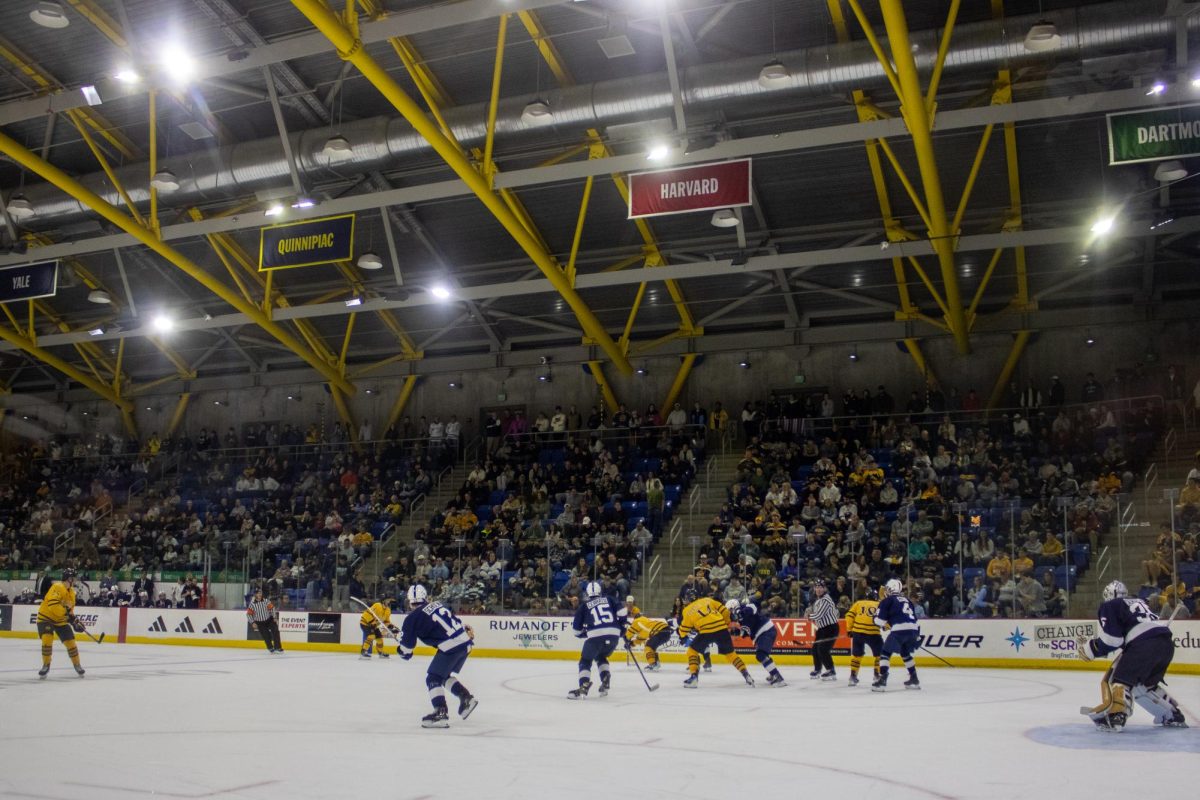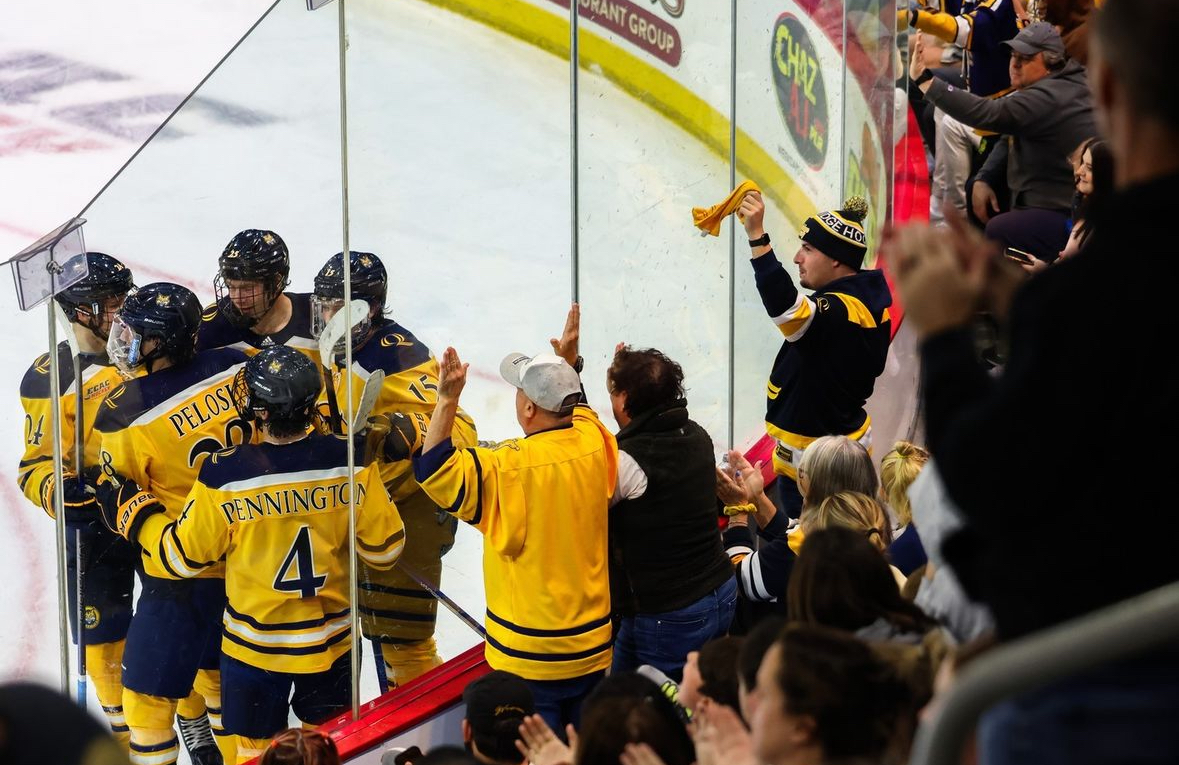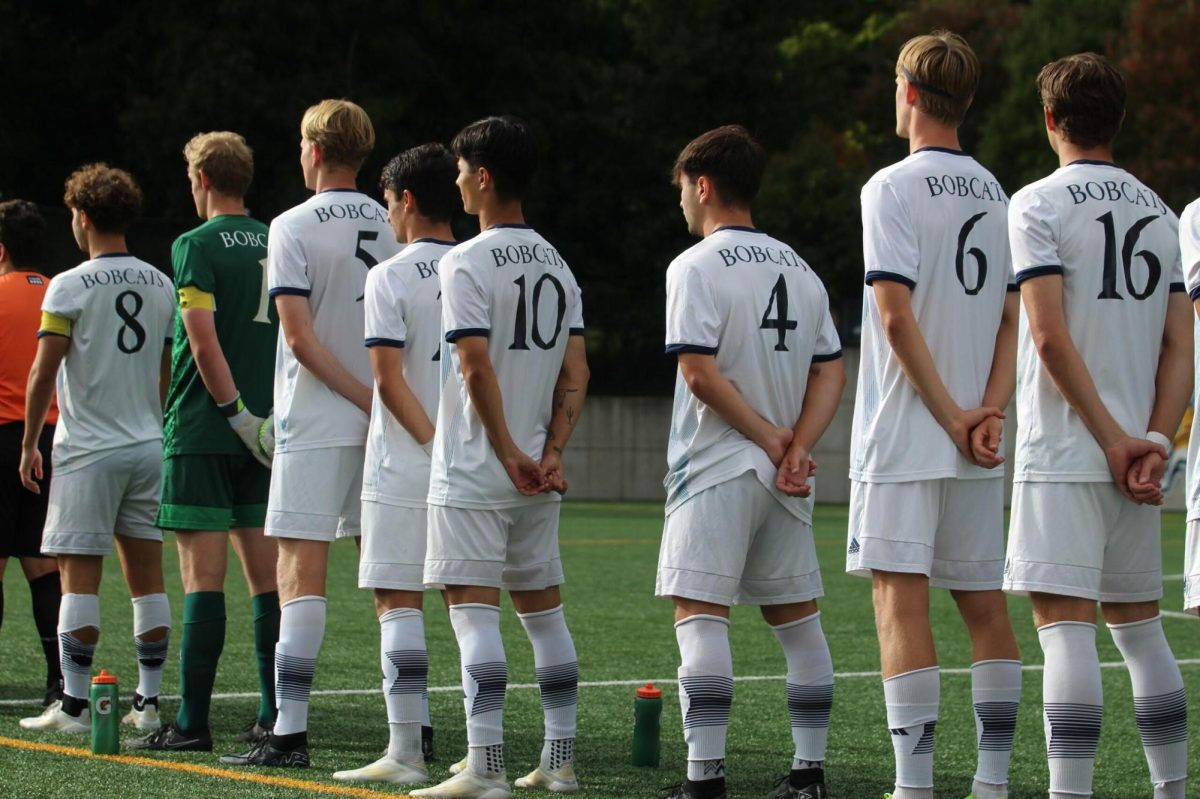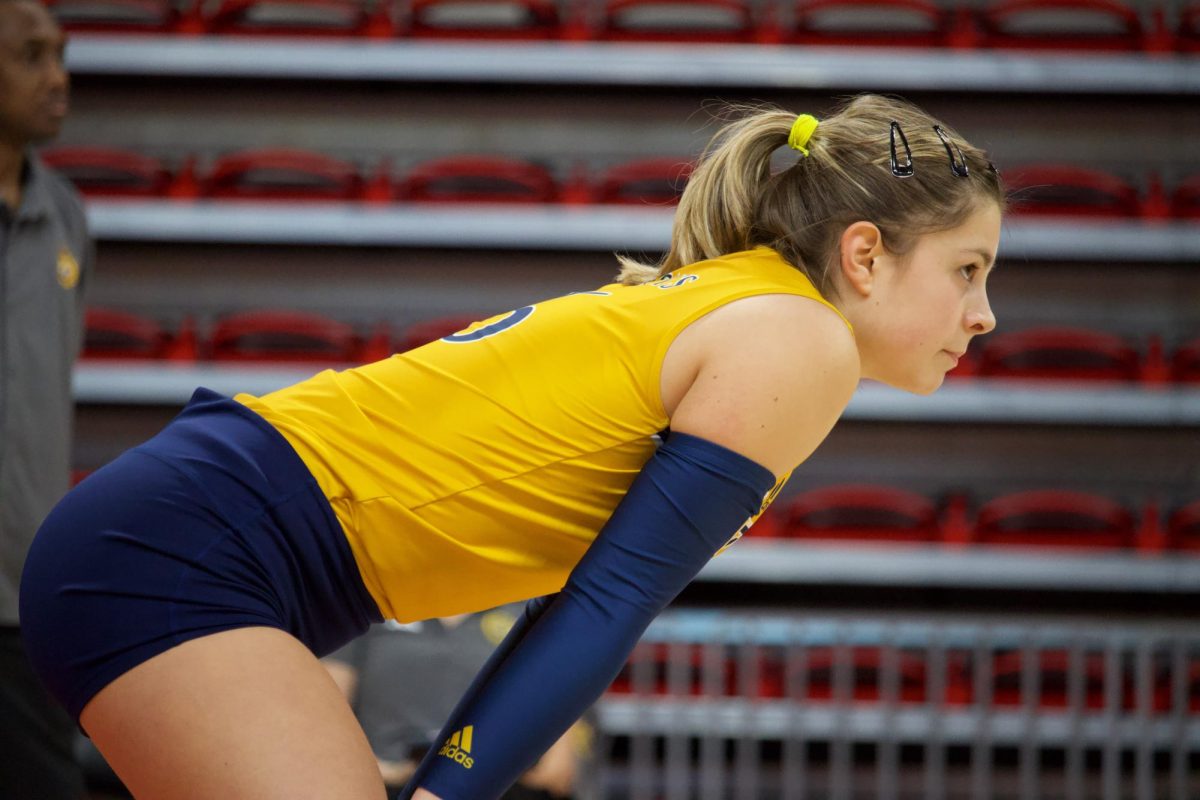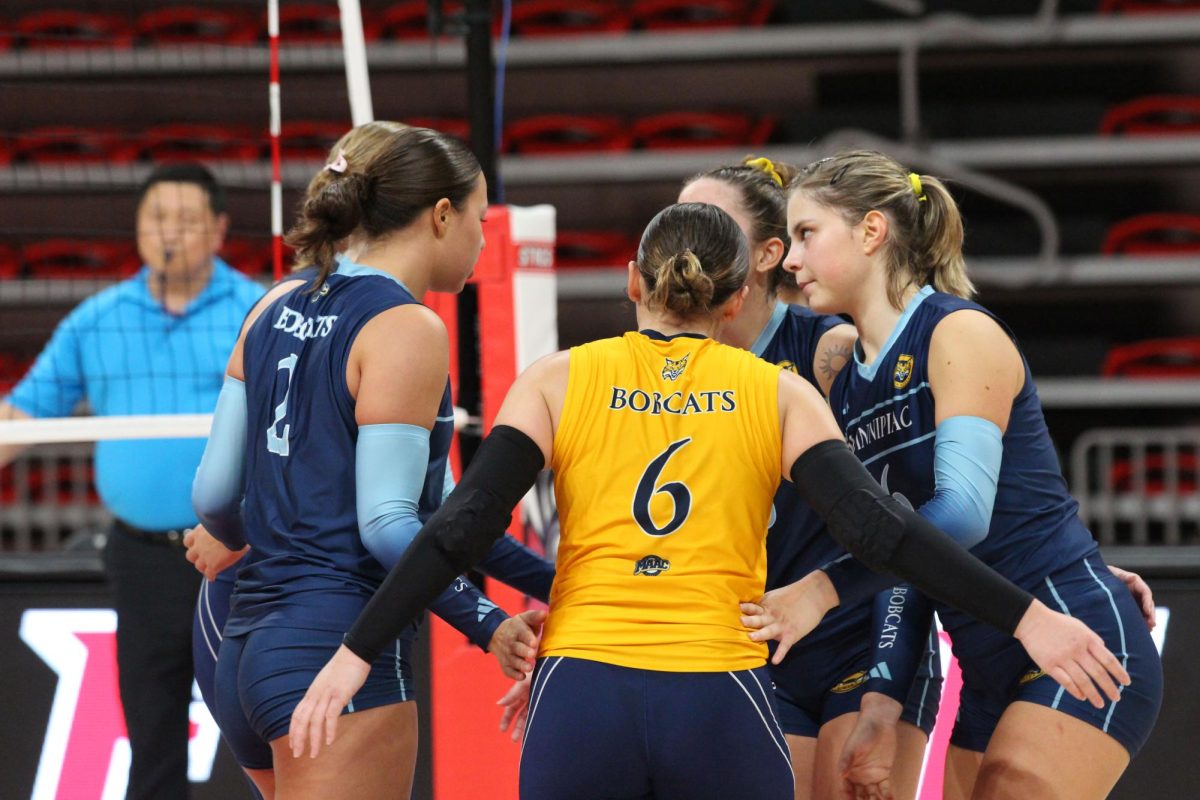By: Ryan Chichester
Follow @RyanChichester1
A shooter’s stroke is a precious possession in its fragility. One moment, you can’t miss even if you tried. Then, as quickly as a ball makes it’s way through the nylon net, the stroke is gone.
Shooters will try anything to get that stroke back when in a funk. Some shoot for hours after practice, while others try a mechanical tweak. Maybe an elbow hasn’t been tucked in, and has begun to wander away from the body. Those who can’t see a difference in the shooting mechanics might just have to send some prayers up to the basketball Gods and hope for the best.
For Quinnipiac men’s basketball guard Isaiah Washington, the key to rediscovering his jumper didn’t have to do with shooting at all.
The clues were on the other end of the court.
The graduate transfer from Penn State introduced himself to Bobcat Nation back in November with 18 points in the regular season opener, a 78-77 win against Dartmouth. Washington shot 3-of-5 from beyond the arc and 6-of-13 from the field, while recording a pair of blocks on the defensive end. After losing last year’s scoring leader Mikey Dixon to transfer, Quinnipiac basketball fans hoped Washington could help carry the offense through the first year of the Baker Dunleavy era.
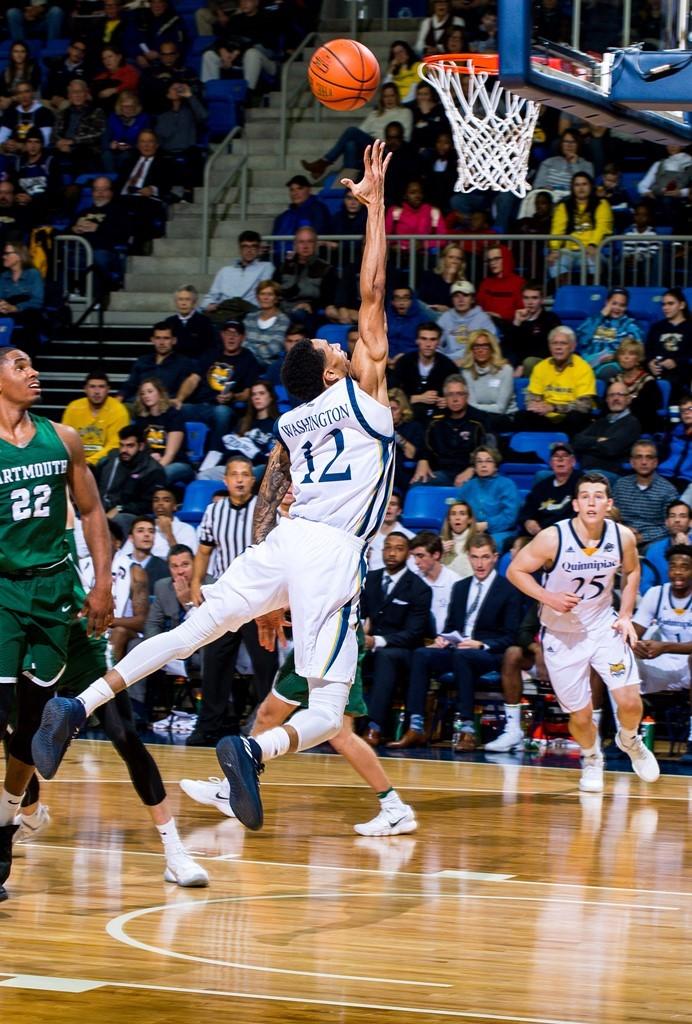
Two days later, the shots stopped falling. Washington finished just 2-for-11 from the field in a loss to Brown. For the next 17 games, Washington shot just 29.6 percent from the field.
Despite the lack of results, Washington continued to put up shots when he had open looks. He still started every game, and has for the entire regular season. At some point, the faith in his shooting stroke would be rewarded. The question just became, when?
Washington’s fortunes began to turn against Siena last Sunday, where he shot 4-for-8 from the field in a Bobcats win. In the next game against Marist, Washington opened the second half in a fury, nailing three triples to push the Bobcats past the Red Foxes for another win. On Saturday against Fairfield, Washington shot 4-for-8 from the field again, while shooting 3-for-6 from beyond the arc. All three games resulted in Quinnipiac wins.
So what changed? When it comes to Washington’s shot, nothing really changed at all. Perhaps he was focusing on the shooting too much, and just needed to increase his efforts elsewhere, so the shooting would come more naturally.
“His numbers haven’t represented how good a shooter he is,” Dunleavy said of Washington’s season so far. “But the better he has played defensively, the better he shoots the ball.”
What gets lost in Washington’s extended shooting funk is his presence on the defensive end, which has reached a pinnacle in the past three games. His fingerprints have been all over the Bobcats’ current three-game winning streak, and not just because his jumper has returned.
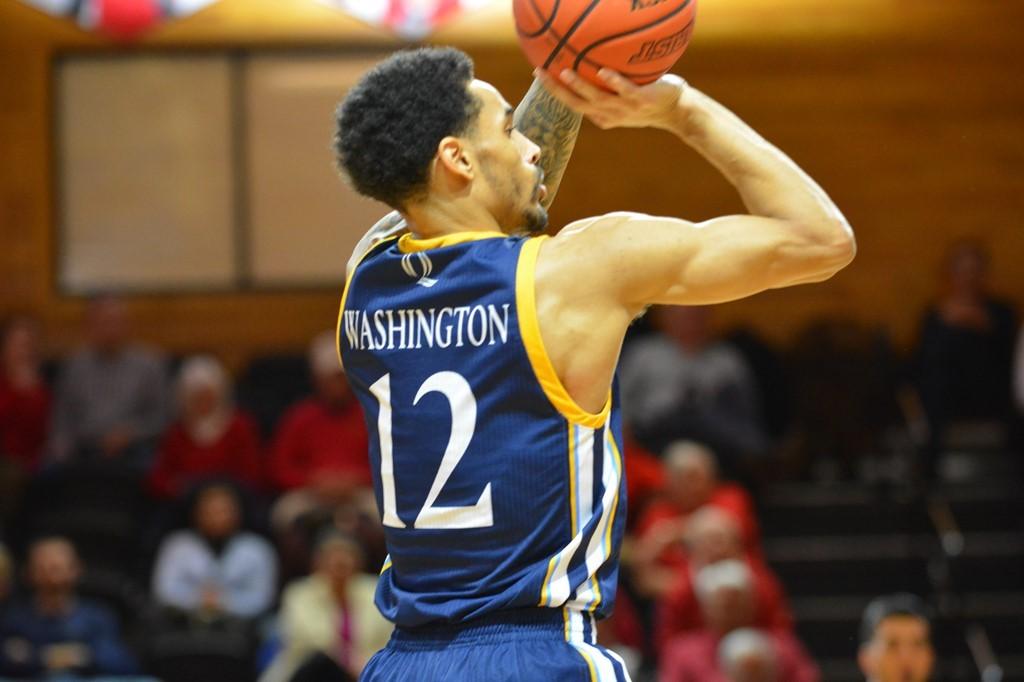
The Bobcats have faced three of the MAAC’s best guards in the past week in Roman Penn (Siena), Brian Parker (Marist) and Tyler Nelson (Fairfield). All three lead their teams in scoring, with Parker currently fourth in the MAAC in points per game, and Nelson in first. Washington handled the bulk of the defensive duties on the scoring trio, who shot a combined 7-for-31 from the field.
In what is an unlikely coincidence, as Washington has turned up the defense, the shots have begun to fall.
“Me and coach talked about focusing on defense and letting the offense come to me,” Washington said. “I tried to sacrifice myself for the team on defense and the shots just came to me.”
Maybe the secret to getting Washington’s shot back was to not focus on shooting at all.
Looking beyond the box score, it becomes clear why the former Penn State guard has remained in the starting five for Baker Dunleavy every game this season. He has been the anchor of the defense that has been humming over the past three games.
“He’s done a great job,” assistant coach Tom Pecora said of Washington’s recent performance. “He has deceiving length and really gets his arms in the passing lanes.”
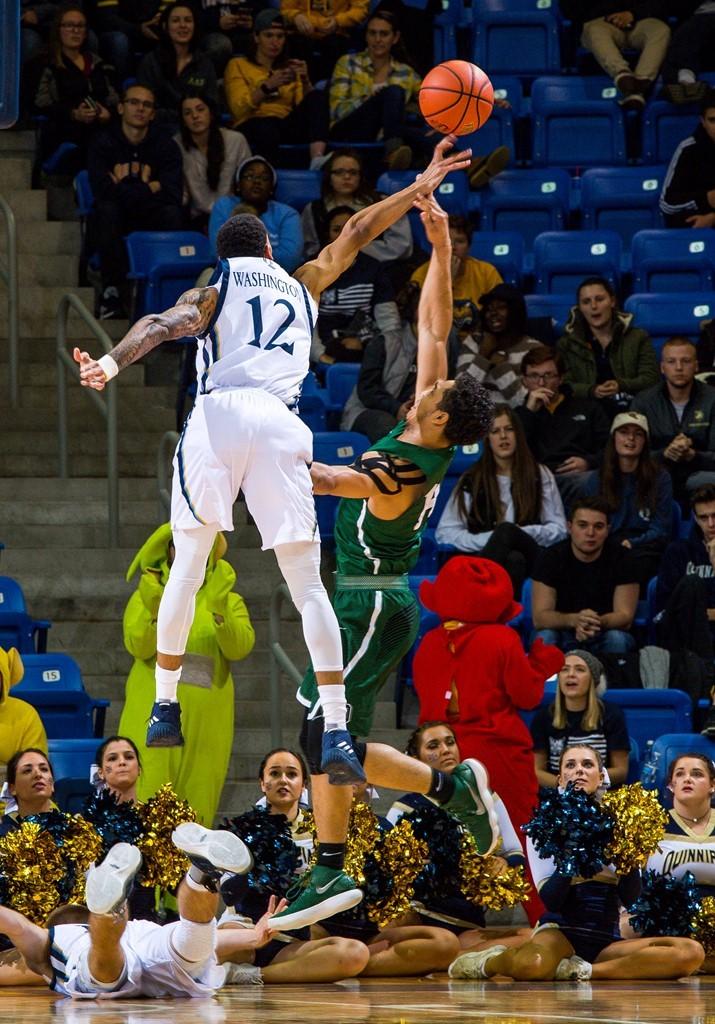
The secret to Washington’s returned success is one that shooters are often afraid to try. Sometimes to get a shot back, you just have ignore it until the shot returns on its own, desperate for attention to the point where it reminds you its still there.
Washington turned his focus to blocking other players’ shots, and his has returned in the process.
It also helps to know that when the shots don’t fall, your number will still be called.
“When you miss some shots you get in your head a little bit, but his head is really clearing up because he knows he’s a great defender and he’ll be on the court because the coaches trust him,” Dunleavy said. “I’m hoping this is a continuing trend and he continues to play with great confidence offensively.”


